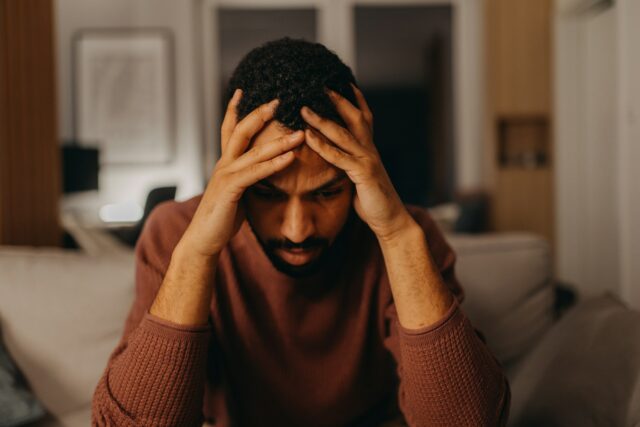Loneliness doesn’t just mean being physically alone — it’s an overwhelming sense of being isolated, even in a room full of people.

Chronic loneliness can slowly creep into every part of life, and while pretty much everyone knows the obvious signs, the subtler ones tend to be overlooked. In fact, they’re so undercover that lonely people themselves don’t even recognise them half the time. However, if you’re experiencing more than a few of these things on a daily basis, you might be struggling with that feeling of disconnection, and it may be time to take action so you can start to feel better again.
1. Difficulty finding joy in things

When loneliness becomes chronic, it starts to sap the joy from things that once made you happy. Activities that you used to love, like reading a book or watching a movie, can feel flat and unfulfilling. It’s not that you’ve lost interest in them, but the absence of meaningful connection makes it hard to enjoy anything fully.
2. Increased sensitivity to rejection

Being chronically lonely makes you hyper-aware of any signs of rejection. A small comment or a missed message might trigger feelings of hurt or being excluded. You might find yourself taking things personally that other people would easily brush off. Your heightened sensitivity is likely rooted in the constant desire for connection that feels out of reach.
3. Trouble connecting with anyone emotionally

Loneliness can lead to a disconnect not just physically, but emotionally. You may struggle to form meaningful connections or have deeper conversations with other people, even if you want to. Keeping everyone at an emotional distance can make it feel like no one truly understands you, reinforcing the cycle of loneliness.
4. Self-doubt and negative thinking

Chronic loneliness often leads to spirals of self-doubt. You start questioning your worth or whether people actually like you. These negative thoughts can feel like a constant companion, further isolating you from everyone and making it harder to reach out for help or connection.
5. Feeling disconnected even in a crowd

Even when you’re surrounded by people, loneliness can make you feel completely isolated. You might physically be with other people, but emotionally, you feel worlds apart. That sense of disconnection can make social situations feel empty, leading you to withdraw even further.
6. Struggling with self-care

Loneliness can drain your motivation, leaving you neglecting your own self-care. Whether it’s skipping meals, avoiding exercise, or not keeping up with hygiene, the lack of connection with anyone can make it hard to care for yourself. The emotional energy required to take care of yourself feels like too much to manage.
7. Physical health problems

The toll of chronic loneliness isn’t just mental or emotional — it can manifest physically as well. People who experience loneliness are at a higher risk for problems like sleep disturbances, headaches, and increased inflammation. Loneliness can even contribute to heart disease and high blood pressure, making it not just a psychological issue but a physical one too.
8. Over-reliance on technology for connection

As loneliness deepens, you might turn to technology to fill the void. Scrolling through social media or sending endless texts may temporarily alleviate the feeling of being alone, but it often leaves you feeling even more disconnected. The virtual connections might not provide the emotional fulfilment you’re craving, making the cycle of loneliness worse.
9. Struggling to trust people

Loneliness can create walls around your heart, making it hard to trust anyone. You may find yourself second-guessing people’s intentions, wondering if they actually care or if they’ll just abandon you when things get tough. The lack of trust can further isolate you, creating a self-fulfilling prophecy of loneliness.
10. Feeling like you’re a burden to everyone

When loneliness drags on, you might begin to feel like you’re a burden to those around you. You don’t want to inconvenience anyone with your need for connection or attention, so you pull back and keep your feelings to yourself. This mindset can prevent you from reaching out for help when you need it most.
11. A constant longing for deeper connections

Chronic loneliness brings with it a deep, almost desperate longing for true connection. You might find yourself craving meaningful relationships but unable to find them. The unfulfilled desire for closeness can leave you feeling frustrated and isolated, as no matter how much you try, something is still missing.
12. Emotional numbness or detachment

Over time, the constant ache of loneliness can lead to emotional numbness. You might feel disconnected not just from other people, but from your own emotions. Your emotional detachment can make it hard to engage with or enjoy life, leaving you feeling like you’re going through the motions without truly being present.
13. Avoiding social situations altogether

As loneliness deepens, social anxiety can take hold. The thought of engaging with people may feel overwhelming, especially when you’ve been feeling disconnected for so long. Instead of reaching out, you might retreat even further, avoiding social situations out of fear of rejection or not fitting in.




